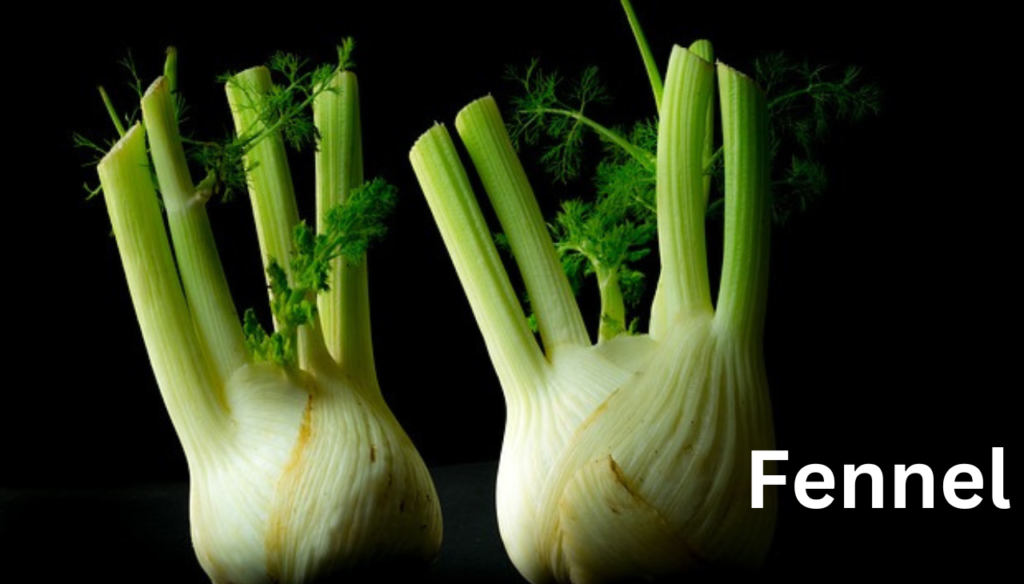- Introduction
- The Botanical Beauty of Fennel
- Culinary Uses of Fennel
- Medicinal Benefits of Fennel
- Fennel Cultivation and Distribution
- Fennel as an Invasive Species
- Frequently Asked Questions (FAQ)
- Conclusion
Introduction:
Foeniculum vulgare, the scientific name for fennel, is a perennial herb that is a member of the Apiaceae family, which also includes carrots. This adaptable plant is prized around the world for its therapeutic and culinary qualities. Fennel is native to southern Europe and Asia Minor, but it has spread throughout temperate regions of the world and left its aromatic mark on a variety of culinary traditions. Let’s investigate the benefits of fennel, from its unique botanical features to its many uses in the kitchen and medicinal cabinet.

1. The Botanical Beauty of Fennel:
Fennel boasts feathery green leaves, resembling dill, atop tall stalks that can reach up to six feet in height. The plant produces umbels of tiny yellow flowers, adding a touch of beauty to gardens and landscapes. Its bulbous stem base, known as Florence fennel or variety azoricum, is a culinary gem, while the seeds hold potent flavors and medicinal properties.
2. Culinary Uses of Fennel:
Fennel is a culinary marvel, offering a myriad of flavors and textures to elevate dishes. The bulb, with its crisp texture and subtle licorice-like flavor, is a prized ingredient in salads, soups, and stir-fries. When cooked, it develops a sweet, caramelized taste, adding depth to roasted vegetables and braised meats. Additionally, fennel seeds, reminiscent of anise, are indispensable in spice blends, such as Chinese five-spice powder, imparting a distinctive aroma to dishes.
3. Medicinal Benefits of Fennel:
Beyond its culinary allure, fennel harbors an array of medicinal virtues. The seeds are rich in essential oils, notably anethole, which possess antioxidant and anti-inflammatory properties. Fennel tea, brewed from crushed seeds, is celebrated for its digestive benefits, soothing upset stomachs and relieving bloating and gas. Furthermore, fennel is revered in traditional medicine for its ability to promote lactation in nursing mothers and alleviate menstrual discomfort.
4. Fennel Cultivation and Distribution:
Fennel thrives in temperate climates with well-drained soil and ample sunlight. It is cultivated worldwide, with major producers including India, China, Egypt, and the Mediterranean region. The plant is relatively low-maintenance, making it accessible to home gardeners and commercial growers alike. Fennel seeds are harvested when fully ripe, while the bulbs are harvested before flowering for optimal tenderness and flavor.
5. Fennel as an Invasive Species:
Despite its culinary and medicinal virtues, fennel can pose ecological challenges in certain regions. It is considered an invasive species in Australia and parts of the United States, where it outcompetes native vegetation and disrupts ecosystems. Efforts to control fennel proliferation involve mechanical removal, herbicidal treatments, and biological control measures to mitigate its impact on biodiversity.
6. Frequently Asked Questions (FAQ):
Q: Is fennel safe for consumption during pregnancy?
A: Fennel is generally considered safe when consumed in moderate amounts during pregnancy. However, pregnant individuals should consult with their healthcare provider before incorporating fennel into their diet, especially in medicinal forms like supplements or concentrated extracts.
Q: Can fennel seeds help with weight loss?
A: While fennel seeds are sometimes touted for their potential to aid weight loss due to their digestive properties, there is limited scientific evidence to support this claim. Fennel can be a healthy addition to a balanced diet, but it is not a magic bullet for weight loss.
Q: How can I incorporate fennel into my cooking if I’m not a fan of its licorice-like flavor?
A: If you’re not fond of fennel’s distinctive flavor, try roasting or grilling it to mellow out its taste. Additionally, combining fennel with complementary ingredients like citrus fruits, herbs, or spices can help balance its flavor profile in dishes.
Conclusion:
Fennel, with its aromatic foliage, flavorful bulbs, and potent seeds, captivates culinary enthusiasts and herbalists alike. From ancient civilizations to modern kitchens, this humble herb continues to weave its magic, adding depth and dimension to dishes while offering a host of health benefits. Whether enjoyed raw, roasted, or brewed into tea, fennel remains a cherished ingredient, embodying the fusion of gastronomy and herbalism.



